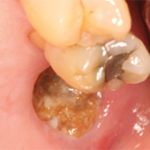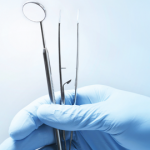“TOOTH seeks to educate elementary-aged students how oral health is linked to systemic health and teaches them how to take care of their oral cavity. Twenty-two first grade students were given the opportunity to experience the program firsthand this past May,” notes a newsletter article about the program coauthored by student Lauren Miller, one of Ms. Slusher’s PA students at the University of Texas.4 “From learning the proper way to floss and brush teeth to visualizing how certain foods and fluoride impact the integrity of a tooth, students were provided hands-on activities and instruction to develop their knowledge of oral health,” continues the newsletter article.
When discussing RA and associations with gum disease, it’s important to point out that children typically don’t have periodontal disease, notes Dr. Scher. He says the evidence is not there to make a causal connection that “kids brushing their teeth regularly” means it will decrease their risk of arthritis.
“We just don’t know that,” says Dr. Scher. Still, good habits go a long way, and teaching oral hygiene to children early in their youth is noble work, he says.
Welcome to TOOTH
Ms. Slusher says the PA project also aims to enlist a broad range of medical professionals to combat the far-reaching impact of poor oral hygiene. She says TOOTH funding was provided by two grants, the National Commission on Certification of Physician Assistants and the UTMB president’s Cabinet Award.

PA student Sabrina Matovich uses Flossisaurus Rex to help a child learn how to brush all surfaces of the teeth.
“One thing we want to really make sure and highlight as practicing PAs is oral health,” says Ms. Slusher, who explains that physician assistants have embraced oral health education as part of their professional identity.
Ms. Miller had experience working with grade-school children and used her connections to gather community support for the project. Ms. Miller says she was excited to take on a research project as part of her studies.
The bottom-line question, explains Ms. Miller, was: Can PA students, or PAs, make an impact on 6-year-olds over three short sessions during school?

Ms. Miller
“Can you teach them how to [properly] brush their teeth?” asks Ms. Miller. “Will they remember what we taught them?”
Inside the classroom, the PA students incorporated planned activities to illustrate to the children such concepts as which foods are good or bad for your teeth and how what you eat not only impacts your teeth but also your heart, your weight and your entire body. Many of the children come from low-income families and they frequently eat chips, soda and other inexpensive foods that are far from healthy, says Ms. Miller.



